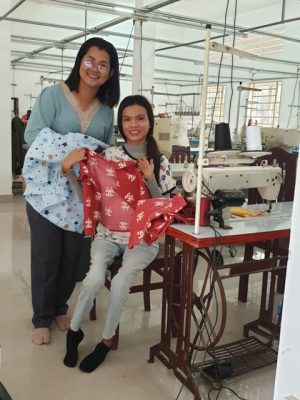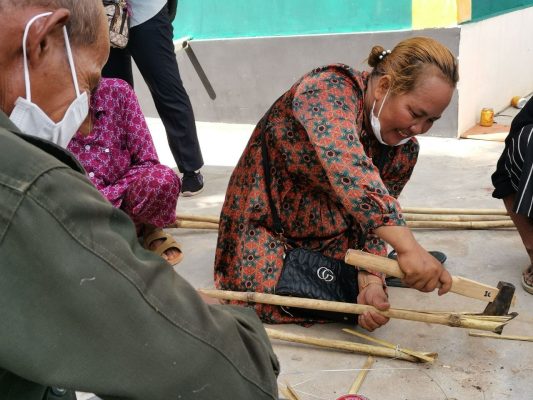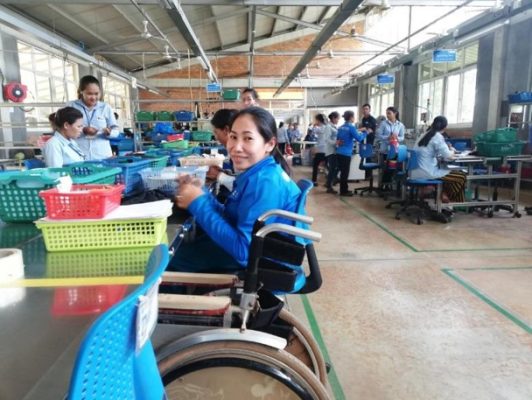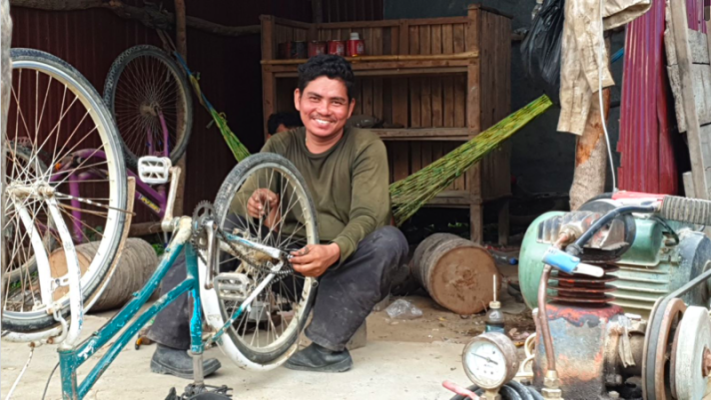Many persons with disabilities, especially women, face difficulties participating in the labour market. Persons with disabilities have lower rates of employment compared to those without worldwide. Women with disabilities, rural residents and those with more severe impairments are even less likely to be employed. Job opportunities are limited due to discrimination, stigma, negative attitudes, lower educational status and lack of accessible transportation, reasonable accommodations and workplaces. This project focusses on the facilitators and inhibitors facing persons with disabilities in securing a decent livelihood through both formal and informal means. This became clear and more urgent during the recent COVID 19 pandemic, which put already vulnerable groups into even more insecurity. We address accessing the job market and supporting and securing less formal (self) employment as well as strengthening the coordination processes that support this including a solid strengthening of disability inclusion as a concept amongst stakeholders to promote a more inclusive and barrier free environment.
We are working in collaboration with government counterparts and the NGO partner network on four key areas 1.) Capacity building on Disability Inclusion, 2.) Supporting inclusive employment through a job coach model and coordination mechanisms 3.) Increasing access to economic opportunity for People with disability through rural livelihood initiatives and 4.) Increased sectoral knowledge on inclusive employment.




570 people with disability registered in the program. 500 have received relevant training. 165 found employment, 250 started livelihood activities such as chicken raising or vegetable growing. 42 were supported to run small businesses, and 65 companies /factories have been engaged. Employment forums were conducted at national and provincial levels.
Involvement in economic development means much more than gaining access to income. It also has a positive impact on social inclusion. When people with disabilities are able to generate their own income, their status in the household and the community improves and their self-esteem and empowerment increases. We recommend that more needs to be done such as:
- Strengthen national mechanism and promote multi- stakeholder collaboration to support access to employment and rural livelihoods for people with disability.
- Promote disability inclusion as a business case and rights based issue.
- Prepare employers to be ‘employment ready’ with targeted support that provides the practical skills, knowledge and confidence they need to be able to create inclusive workplaces that welcome and retain employees with and without disabilities.
- Job Seeker Readiness: strengthen talent pool through building relevant skills and confidence.
- A job coach model where the ‘job ready’ and ‘employment ready’ are matched is needed to address employer needs and to match the with job seekers, a job coach model is appropriate. Job coaches play the role of ‘trusted broker’ who support jobs seekers to get job ready, to transition into employment and to support employers to get employment ready.
- Continue to research and support rural livelihood opportunities for persons with disability and encourage innovation and access to opportunity including training, resources and finance.
Throughout our work, we have learnt that actors in the field of development need to go through organizational and systematic processes of change within their programs to move towards sustainable (disability) inclusion. We support these processes at community, organizational and governmental level.